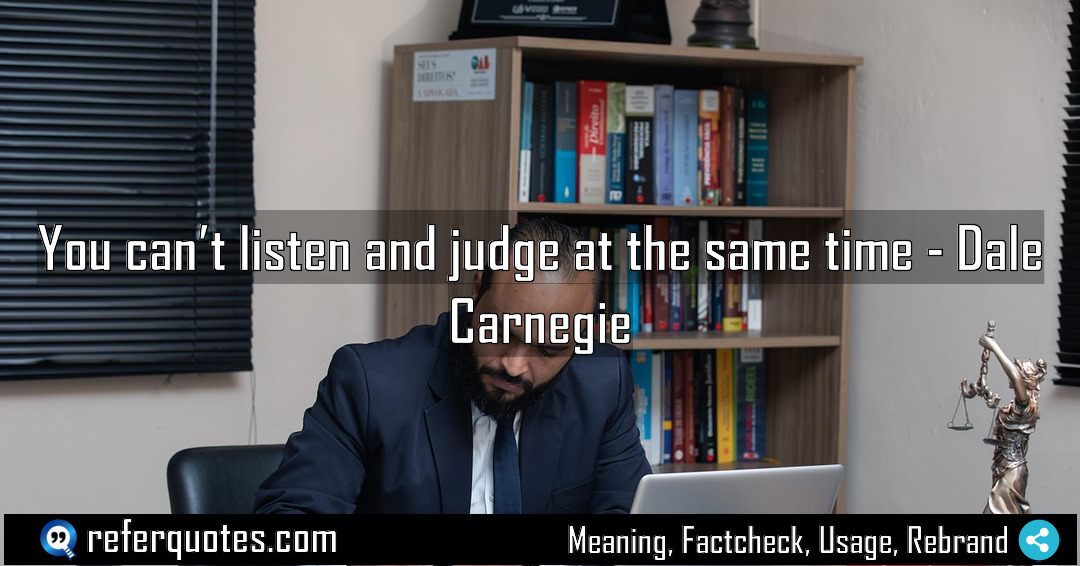You can’t listen and judge at the same time. It’s one of those simple truths that completely changes how you connect with people once you truly get it. It forces you to choose between truly understanding someone or just waiting for your turn to talk.
Share Image Quote:Table of Contents
Meaning
The core message is brutally simple: your brain can’t genuinely receive information and evaluate it critically at the exact same moment. It’s a cognitive traffic jam.
Explanation
Let me break it down for you. When you’re in a conversation and you’re already forming your rebuttal, or mentally labeling what they’re saying as “wrong” or “stupid,” you’ve stopped listening. You’ve switched from input mode to output mode. Your focus shifts from understanding their perspective to preparing your own defense or attack. The person talking can almost always feel this shift—it’s that subtle wall that goes up. And once it’s up, real communication, the kind that resolves conflicts and builds trust, just stops. It’s like trying to pour water into a cup that’s already full.
Quote Summary
| Context | Attributes |
|---|---|
| Original Language | English (3668) |
| Category | Skill (416) |
| Topics | awareness (126), judgment (32), listening (91) |
| Literary Style | memorable (234), short (36) |
| Emotion / Mood | calm (491), provocative (175) |
| Overall Quote Score | 85 (305) |
Origin & Factcheck
This specific phrasing comes from the 2009 book “The 5 Essential People Skills,” published in the United States, which is a product of the Dale Carnegie Training organization. It’s a distillation of principles from Carnegie’s classic “How to Win Friends and Influence People,” so while the exact quote is from 2009, the wisdom is pure, vintage Carnegie.
Attribution Summary
| Context | Attributes |
|---|---|
| Author | Dale Carnegie (408) |
| Source Type | Book (4032) |
| Source/Book Name | The 5 Essential People Skills: How to Assert Yourself, Listen to Others, and Resolve Conflicts (71) |
| Origin Timeperiod | 21st Century (1892) |
| Original Language | English (3668) |
| Authenticity | Verified (4032) |
Author Bio
Dale Carnegie(1888), an American writer received worldwide recognition for his influential books on relationship, leadership, and public speaking. His books and courses focus on human relations, and self confidence as the foundation for success. Among his timeless classics, the Dale Carnegie book list includes How to Win Friends and Influence People is the most influential which inspires millions even today for professional growth.
Official Website |Facebook | X | Instagram | YouTube |
Where is this quotation located?
| Quotation | You can’t listen and judge at the same time |
| Book Details | Publication Year/Date: 2008 ISBN/Unique Identifier: 9781416595489 (ISBN-13), 1416595487 (ISBN-10) Last edition. Number of pages: Common reprints ~256 pages |
| Where is it? | Chapter: Listening Without Judgment, Approximate page from 2009 edition |
